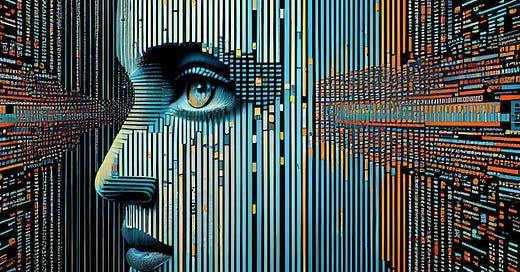In a modern workplace filled with meetings, deadlines, and an unending stream of digital disruptions, the concept of dedicating ourselves wholeheartedly to our crafts can sometimes feel like a luxury. Artificial intelligence (AI) becomes a tempting tool to push us over the finish line a bit faster. The integration of AI into the spheres of creativity and technology is no longer a speculative if but an inevitable when.
It’s true that AI tools are valuable in making our work lives run smoother. As the debate around exactly how they’re useful continues to unfold, one of the arguments surrounding AI is the notion that it won’t replace knowledge workers’ jobs, but will allow us to supplement entry-level roles. This will propel inexperienced workers into roles that would normally require a few years on the job.
Scientists highlight the role of intuition, honed through decades of experience, as our brain's way of recognizing patterns and signals beneath our conscious awareness. Intuition represents the distilled essence of years of experience — an element of craftsmanship that, despite AI's impressive capabilities, is uniquely human.
The idea that experienced professionals can dodge the tidal wave of AI's influence in the workplace misses a critical point. The foundational experiences that shape our skills are irreplaceable. My own career, dotted with constructive criticism from editors, colleagues, (and most memorably, harsh critics), has molded me into the writer I am today. These human interactions offered me insight that AI, for all its efficiency, can’t emulate.
For most writers, cultivating a distinct voice, style, and clarity demands years of work. This truth spans professions. The essence of becoming a seasoned writer or designer is a gradual process of evolution.
Using AI in our process without acknowledging the critical role of experiential learning poses a threat to the core of creativity itself. Richard Sennett, an academic and sociologist, says that “making is thinking.” It's a principle that we should try to keep at the front of our minds when working with AI. Ignoring this could diminish our work to echoes of what came before, hindering our development as craftspeople and thinkers.
As we boost our productivity with AI to remain competitive, it's vital to recognize the unparalleled value of human creativity and craftsmanship. Achieving excellence is a long-term commitment, requiring patience, practice, and the lessons we derive from personal experience.
In our progress, we should aim for a fusion of AI's analytical precision with the depth of our human intuition and creativity, ensuring a future where technology amplifies rather than replaces the human touch.




